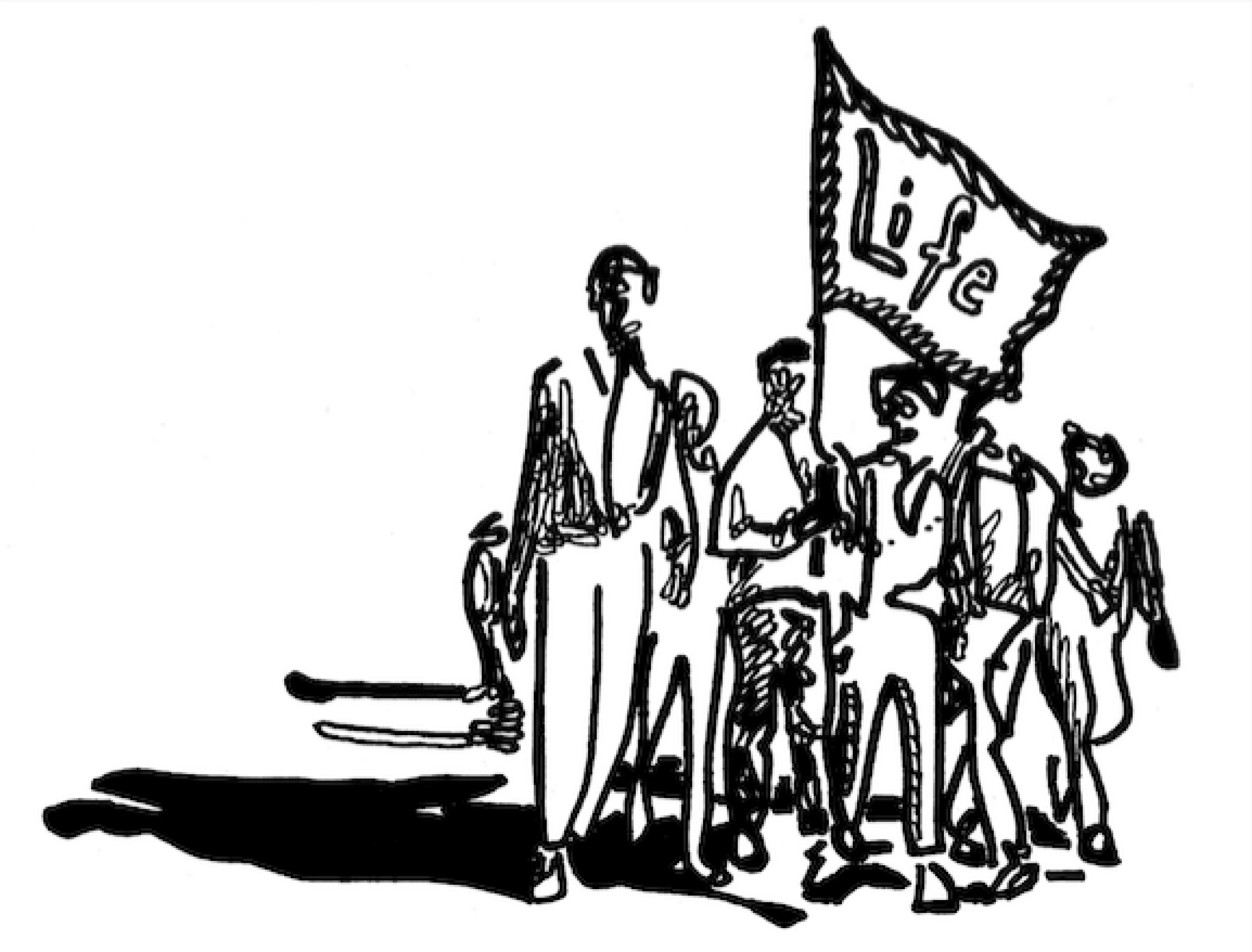Illustration by Ari Libenson
Thousands of pro-life demonstrators took to the streets of San Francisco for the fourteenth annual Walk for Life on January 27.
The Walk for Life is a pro-life march that occurs in cities across the United States around the anniversary of the landmark Supreme Court case Roe v. Wade, which affirmed women’s right to receive abortion services. Event organizers believe that abortion causes physical and emotional harm to women and their children, and that it violates the sanctity of life. After the march, a Roman Catholic mass and rally took place at Civic Center Plaza.
March organizers expected 30,000 to 50,000 protesters to attend. Eva Muntean, Walk for Life’s co-founder, co-chair and lead organizer, said that it was the largest protest the movement has ever seen in San Francisco.
“[The march] was fantastic. Not only were both Civic Center Plaza and Market Street filled with happy pro-life people, the number of events, both secular and religious, generated by the Walk continues to grow every year,” said Muntean. She said that the Walk for Life sparks other events including conferences, prayer vigils, street theater, and protests.
Muntean described pro-life activism as being “born of love,” and emphasized the diversity of the movement’s supporters. “Us organizers really love the spectrum of people who are united by the pro-life cause,” she said. “For us it was exemplified this year by the Orthodox Christians for Life chanting a prayer service in one part of the Plaza while Secular Pro-Life were gathered right next door,” she continued.
Muntean supports overturning Roe v. Wade and allowing states to formulate their own laws regarding the legality of abortion. She expressed approval of President Donald Trump’s decisions around abortion while in office.
Allie Lahey, the program manager for NARAL Pro-Choice California, said that the pro-life platform is misleading. A statement from NARAL described pro-life groups as part of a network that “works under the radar to push a radical agenda to restrict access to contraception, ban abortion outright, and oppress LGBTQ people in our country.”
Muntean said that it is difficult to hold pro-life beliefs in California, especially in the Bay Area. “Having this [pro-life] perspective is challenging, but we love being here, first, because it’s where we live, but also because it is the front lines,” she said.
A poll of 2,313 California voters conducted on behalf of NARAL reported that 84 percent of participants supported women’s access to abortion. Despite the state’s strong pro-choice leaning, Lahey said California and the Bay Area could do more to implement reproductive rights. She said Californians often don’t realize that there are still significant barriers to abortion access in the state, including clinics being shut down due to low Medi-CAL reimbursement rates and women in rural areas and on college campuses not having access to clinics.
Sophia Yen is a Stanford professor and a doctor with a clinical focus on contraception and reproductive health. She was a speaker at the Step Up for Pro-Choice demonstration in Los Altos on January 22, an event created by the Bay Area Women’s March organization. At the event, Yen discussed emergency contraception, birth control, safe abortion methods, and the need to speak up against what she described as anti-women and anti-reproductive rights media and organizations. Yen supports the Women’s March, and has participated in demonstrations in San Jose and San Francisco. “[The Women’s March] is a public display that women will not be second class citizens - that we do not like what is going on with respect to women’s rights, reproductive rights, under this administration,” she said. Yen was disappointed that more pro-choice activists and organizations didn’t protest the Walk for Life.
She said abortion is a personal matter and concerns a women’s right to privacy, and said she thinks making abortion illegal or more difficult to access will lead to more women dying from back alley or self-induced abortions. She views the Walk for Life as forcing religious doctrines onto women.
Pastor Michael Hurley helped host a Vigil for Life in support of the Walk for Life with his congregation at St. Dominic’s Catholic Church. In an email, he described his religious beliefs surrounding abortion. Hurley wrote, “As a Church, we value life without exception, and since science tells us that, at the moment of conception, there is something new which comes into existence, we celebrate this life and seek to protect its choices and interests.”
Hurley said he found the Walk for Life to have an uplifting and unifying effect on those who participated. He described the demonstration as expressing the “joy of life.”





